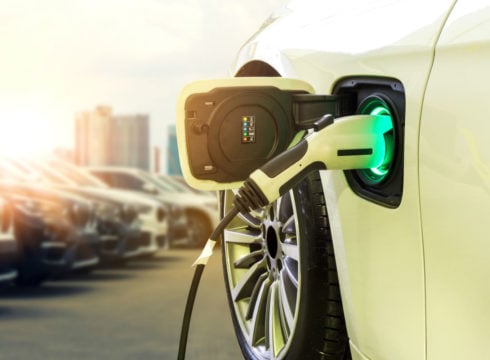SUMMARY
The concerns have increased with multiple international trade tensions
The government is looking to use advanced chemistry cells
Government launched the National Mission on Transformative Mobility and Battery Storage
Inc42 Daily Brief
Stay Ahead With Daily News & Analysis on India’s Tech & Startup Economy
The Indian government has been finding ways to push for electric mobility in the country as it plans for 30% electric vehicle dependency by 2030. Beyond ensuring there are a large number of electric vehicles on the road, the government is also focusing on the infrastructure and manufacturing issues.
Along the same lines, the concerns of lithium-ion battery and its import from China and other such countries, the government is now reportedly looking at different alternatives of battery technologies such as polymer-based solid state batteries.
The concerns have increased after a Chinese company secured lithium mine concessions in countries such as Bolivia, Argentina and Chile. The plan is to avoid India from falling in a vulnerable position with a likely threat of supply squeeze as has happened in the case of crude oil, with India being the world’s third largest oil importer.
It is to be noted that with continued international tensions, India is vulnerable as it imports more than 80% of its oil requirements and around 18% of its natural gas. Therefore, the government is looking to use advanced chemistry cells that offer an alternative to lithium storage batteries are metal hydride, zinc air, sodium air and nickel zinc among others.
For this, the country has set up an inter ministerial committee chaired by Amitabh Kant, CEO, NITI Aayog. The National Mission on Transformative Mobility and Battery Storage comprises secretaries from the ministries of road transport and highways, power, new and renewable energy, and the departments of science and technology, heavy industries, industrial policy and promotion and has held numerous meetings to expedite the plan.
Earlier a NITI Aayog report had said that in addition to the currently available Lithium-ion chemistries, future developments in battery chemistry may yield a new generation of batteries which will include ‘solid state’ batteries that promise a storage capacity of about 1000 Wh/kg and 80 percent charge in about 10 minutes.
These batteries, however, are still at laboratory scale and would take time to be commercially available. The major setbacks behind electric vehicle adoption are the high price of the vehicles and lack of proper charging infrastructure. Heavy imports of battery parts from China and other countries also inflate the prices of vehicles, thus discouraging the customers to opt for electric vehicles rather than fuel run vehicles.
In June, the central government was considering inviting companies to come together and set up 50-GW battery manufacturing base in India with an investment of $50 Bn and other financial incentives.
Note: We at Inc42 take our ethics very seriously. More information about it can be found here.


